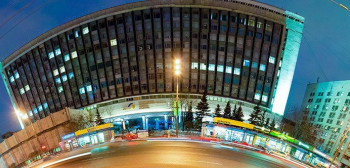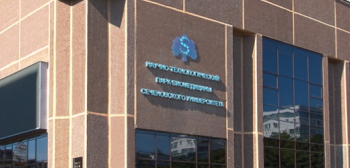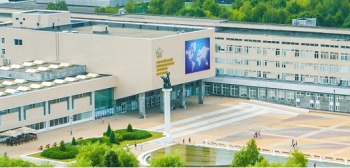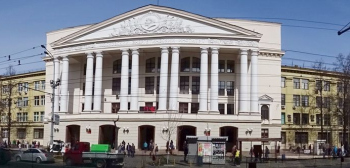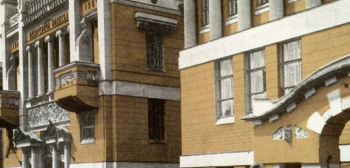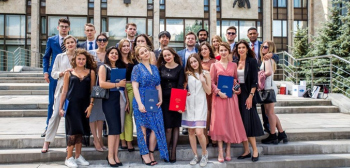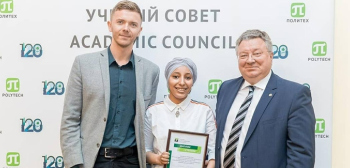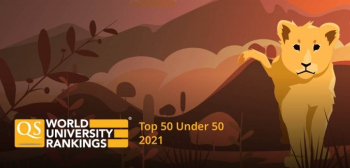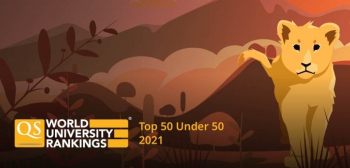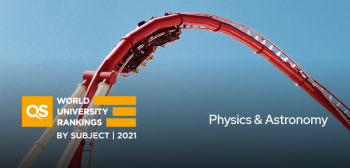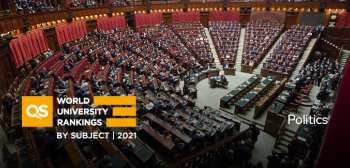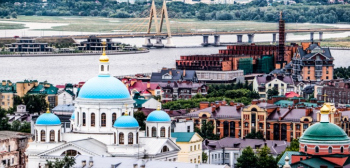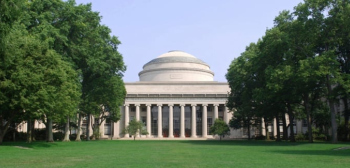克麦罗沃州立大学
About
he Kemerovo State University (Ке́меровский госуда́рственный университе́т) (KemSU) was established in 1973 as a successor to Kemerovo Pedagogical Institute. It is a leading educational and scientific center of Kemerovo Oblast with five branches throughout the oblast in Belovo, Anzhero-Sudzhensk, Novokuznetsk, Prokopyevsk, as well as in Ulaanbaatar in Mongolia.
The main campus has 17 educational laboratory and administrative buildings with the total space of 120,000 m². There are 20 departments, 70 chairs. Over 10,...
Read more
he Kemerovo State University (Ке́меровский госуда́рственный университе́т) (KemSU) was established in 1973 as a successor to Kemerovo Pedagogical Institute. It is a leading educational and scientific center of Kemerovo Oblast with five branches throughout the oblast in Belovo, Anzhero-Sudzhensk, Novokuznetsk, Prokopyevsk, as well as in Ulaanbaatar in Mongolia.
The main campus has 17 educational laboratory and administrative buildings with the total space of 120,000 m². There are 20 departments, 70 chairs. Over 10,000 full-time students. About 21,000 students including part-time. Over 900 faculty members, including: 35 academicians and corresponding members of the Russian Academy of Sciences and other academies; 80 Doctors of Science, professors; 380 candidates of science, senior lecturers. Seventeen persons are awarded "Honored Workers" titles. About 500 post-graduates and doctoral students. Five Councils on Theses.
On average KemSU post-graduate students defend 30-40 Candidate's and 6-8 Doctor's theses in a given year. KemSU holds 6-10 All-Russia and international scientific conferences annually. The annual number of scientific publications runs up to over 1,500, including 600-700 articles in the central press.
The university specializes in rare languages such as the Shor language, and has begun a revival of the regional languages.
Read lessAbout
he Kemerovo State University (Ке́меровский госуда́рственный университе́т) (KemSU) was established in 1973 as a successor to Kemerovo Pedagogical Institute. It is a leading educational and scientific center of Kemerovo Oblast with five branches throughout the oblast in Belovo, Anzhero-Sudzhensk, Novokuznetsk, Prokopyevsk, as well as in Ulaanbaatar in Mongolia.
The main campus has 17 educational laboratory and administrative buildings with the total space of 120,000 m². There are 20 departments, 70 chairs. Over 10,...
Read more
he Kemerovo State University (Ке́меровский госуда́рственный университе́т) (KemSU) was established in 1973 as a successor to Kemerovo Pedagogical Institute. It is a leading educational and scientific center of Kemerovo Oblast with five branches throughout the oblast in Belovo, Anzhero-Sudzhensk, Novokuznetsk, Prokopyevsk, as well as in Ulaanbaatar in Mongolia.
The main campus has 17 educational laboratory and administrative buildings with the total space of 120,000 m². There are 20 departments, 70 chairs. Over 10,000 full-time students. About 21,000 students including part-time. Over 900 faculty members, including: 35 academicians and corresponding members of the Russian Academy of Sciences and other academies; 80 Doctors of Science, professors; 380 candidates of science, senior lecturers. Seventeen persons are awarded "Honored Workers" titles. About 500 post-graduates and doctoral students. Five Councils on Theses.
On average KemSU post-graduate students defend 30-40 Candidate's and 6-8 Doctor's theses in a given year. KemSU holds 6-10 All-Russia and international scientific conferences annually. The annual number of scientific publications runs up to over 1,500, including 600-700 articles in the central press.
The university specializes in rare languages such as the Shor language, and has begun a revival of the regional languages.
Read lessUniversity highlights
Campus locations
Kemerovo Campus,
Kemerovo State University , Kemerovo , Russia , 650043
Similar Universities
Russian Institute of Theatre Arts (GITIS)
Maly Kislovskiy Lane, 6, Moscow
塞维诺夫第一莫斯科国立医科大学
8-2 Trubetskaya street, Moscow
国家研究型大学“莫斯科动力学院”
National Research University Moscow Power Engineering Institute, Moscow




